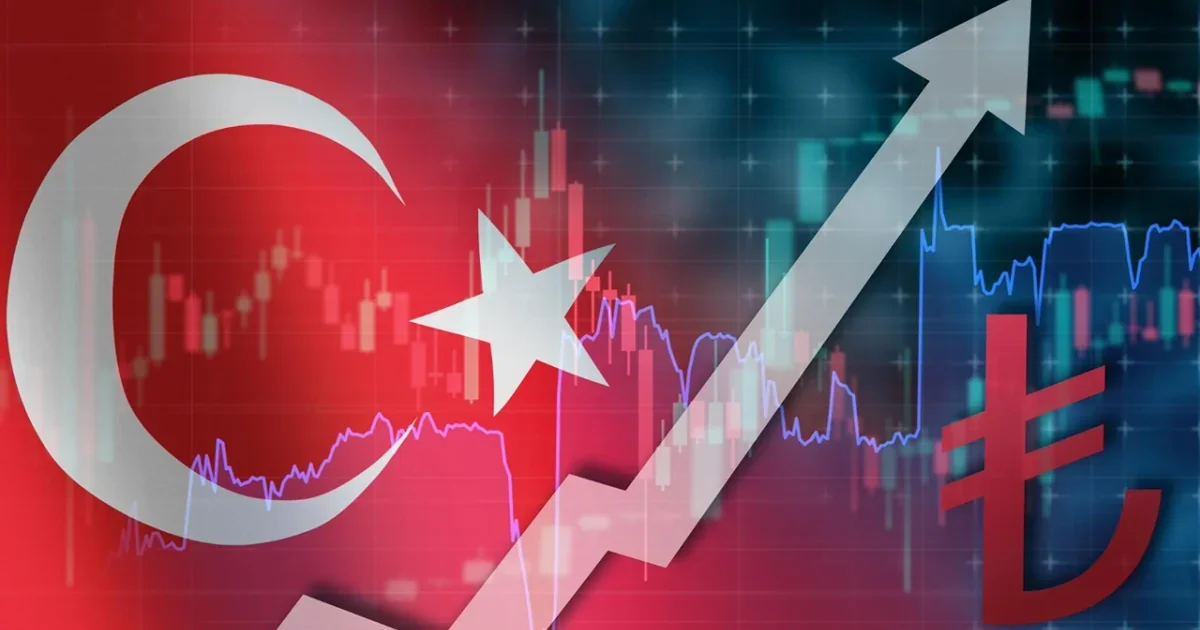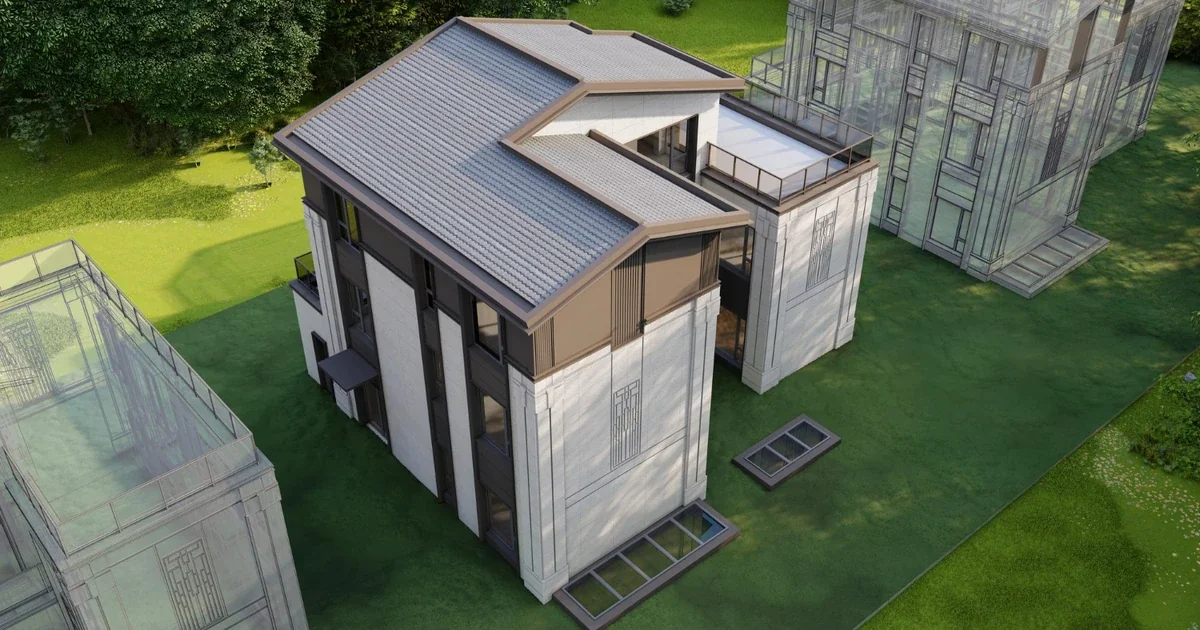Turkey 2025: Sharp Rise in Property Sales Despite Declining Purchasing Power
August 8, 2025
Real Estate Prices… The Reality of the Decline and the Strength of the Dollar
In 2025, the Turkish real estate market experienced a unique situation: nominal prices in Turkish lira rose significantly, while real values showed a slight decline. This drop in real terms appears only when measured in Turkish lira. However, when prices are calculated in U.S. dollars—the currency tied to most foreign investments—the picture is entirely different.
While the annual inflation rate reached about 39% at the start of 2025, nominal house prices rose 31.95% year-on-year, but the real value in lira dropped by around 7.16%. However, the U.S. dollar appreciated significantly against the lira, causing property prices in Turkey, when measured in dollars, to follow a continuous upward trend from 2022 to 2025. This means that a foreign investor buying in dollars was achieving real capital gains even amid domestic inflation.
This gap between nominal and real growth was evident in Turkey’s main cities. For example, in Istanbul, prices rose 29.6% nominally in January 2025 but fell 8.8% in real terms after inflation adjustment. In Ankara, the nominal average increased 36.6% but dropped 3.9% in real value. Izmir saw a 29.6% nominal rise against an 8.8% real decline. This disparity reflects the market reality: high inflation erodes much of the nominal gains, reducing the real return on real estate investments. Nevertheless, Istanbul retained its position as Turkey’s most expensive market with an average price of about 55,500 lira per square meter (USD 1,520) in 2024, followed by Izmir at 40,600 lira (USD 1,112) and Ankara at 29,800 lira (USD 815) per square meter. Yet when adjusted for purchasing power, these prices reveal the impact of inflation: nominal increases did not prevent the real value of assets in lira from falling, while the actual dollar value has been rising—boosting prospects for future profits.
Sales Growth and Interest Rates
Despite inflation challenges and eroded purchasing power, real estate sales volumes saw a strong recovery in 2024, with momentum continuing into 2025. According to the Turkish Statistical Institute (TURKSTAT), total home sales jumped 20.6% to reach 1.48 million units in 2024 compared to the previous year. This was a notable turnaround after a 17.5% sales decline in 2023 and a slight drop in 2022. The positive trend persisted at the start of 2025, with January posting a massive 39.7% annual increase to 112,173 units. This growth is partly due to local buyers turning to property as a hedge against inflation, alongside expectations of interest rate cuts. In January, new home sales rose 29.8% year-on-year, while used home sales surged 44.2%, showing active movement in both new and existing property markets.
You may also be interested in: 5 Simple Steps to Determine Your Property’s Value in Turkey
Declining Foreign Demand… An Opportunity for Arab Investors
In contrast, foreign demand has dropped sharply due to changes in foreign ownership policies. The number of properties bought by foreigners fell to 23,781 units in 2024—a 32% decrease from 2023—representing only about 1.6% of total sales, compared to 4.6% two years earlier. This decline is linked to the 2022 increase in the investment threshold required for Turkish citizenship, which dampened foreign investor appetite. While some nationalities, such as Russians and Iranians, remain active in the Turkish market, overall foreign demand stayed low at the start of 2025 (-24.9% year-on-year in January). For Arab and other foreign investors, this may mean less competition from international buyers and thus opportunities to secure properties at relatively attractive prices before a potential rebound in foreign demand.
Monetary Policy… Additional Support for the Market
In terms of monetary policy, Turkey has undergone sharp shifts that have affected real estate financing. The central bank gradually raised its benchmark interest rate to 50% by March 2024—the highest since 2002—in an effort to curb inflation. Despite high borrowing costs slowing real price growth, domestic real estate demand did not contract; buyers continued to view property as a hedge against lira depreciation. With inflation easing in late 2024, the monetary authority shifted towards easing: interest rates were cut to 45% in January and then to 42.5% in February 2025 to support economic activity. This rate reduction has fueled expectations of further recovery in the property market, gradually offsetting the heavy financing burden. Analysts already point to stability in property prices when measured in U.S. dollars and a return to an upward trend as inflation recedes and interest rate constraints ease. Industry experts expect this positive trajectory to continue in the coming years, meaning early investment now could yield strong returns once the economy stabilizes, with a new wave of dollar-based price increases anticipated.
In conclusion, the Turkish real estate market in 2025 presents a complex picture: rising sales and record nominal figures versus inflation challenges and declining real purchasing power. Still, property remains one of the main hedging tools for local investors against runaway inflation. For foreign investors—particularly from the Arab region—it is essential to monitor these real indicators closely. As inflation subsides and policymakers move to reduce borrowing costs, the coming period could bring promising investment opportunities in Turkey. Taking advantage of current prices before a potential sharp rebound, while maintaining a balanced view between realistic expectations of real returns and cautious optimism, is key to successful investment in the Turkish real estate market in the period ahead.
Read also:
Keywords
What is your budget?
Recommended Articles

December 15, 2025
How to Choose the Right Property in the UAE? 2026 Investor Guide
How to choose the right property in the UAE for 2026. A comprehensive guide covering best areas, ROI calculation, and off-plan buying risks.

November 13, 2025
Turkey’s 2025 Economic Program: How Will It Affect Inflation, the Lira, and the Real Estate Market?
The new Turkish economic program: what it means for investors and how it will impact inflation, the lira, and real-estate investment opportunities in Turkey.

July 8, 2025
Modular vs. Traditional Construction: Speed, Cost, and Durability
A comparison of modular and traditional construction in terms of execution speed, project costs, and durability—essential insights for real‑estate investors.
